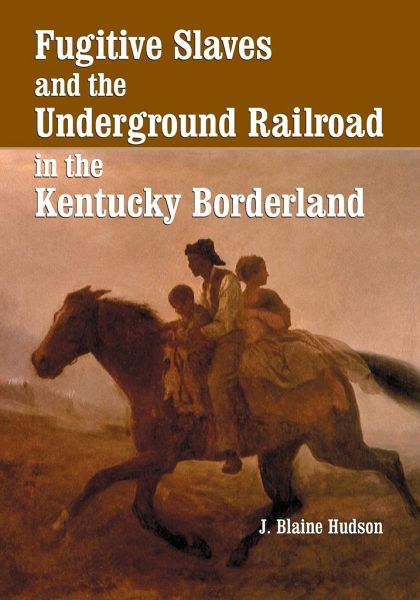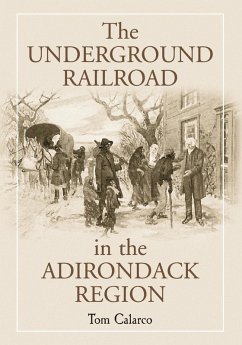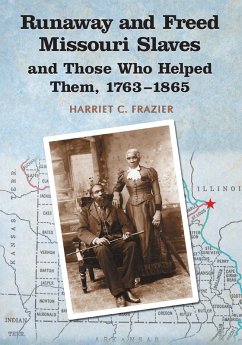
Fugitive Slaves and the Underground Railroad in the Kentucky Borderland
Versandkostenfrei!
Versandfertig in 1-2 Wochen
32,99 €
inkl. MwSt.

PAYBACK Punkte
16 °P sammeln!
Between 1783 and 1860, more than 100,000 enslaved African Americans escaped across the border between slave and free territory in search of freedom. Most of these escapes were unaided, but as the American anti-slavery movement became more militant after 1830, assisted escapes became more common. Help came from the Underground Railroad, which still stands as one of the most powerful and sustained multiracial human rights movements in world history. This work examines and interprets the available historical evidence about fugitive slaves and the Underground Railroad in Kentucky, the southernmost...
Between 1783 and 1860, more than 100,000 enslaved African Americans escaped across the border between slave and free territory in search of freedom. Most of these escapes were unaided, but as the American anti-slavery movement became more militant after 1830, assisted escapes became more common. Help came from the Underground Railroad, which still stands as one of the most powerful and sustained multiracial human rights movements in world history. This work examines and interprets the available historical evidence about fugitive slaves and the Underground Railroad in Kentucky, the southernmost sections of the free states bordering Kentucky along the Ohio River, and, to a lesser extent, the slave states to the immediate south. Kentucky was central to the Underground Railroad because its northern boundary, the Ohio River, represented a three hundred mile boundary between slavery and nominal freedom. The book examines the landscape of Kentucky and the surrounding states; fugitive slaves before 1850, in the 1850s and during the Civil War; and their motivations and escape strategies and the risks involved with escape. The reasons why people broke law and social convention to befriend fugitive slaves, common escape routes, crossing points through Kentucky from Tennessee and points south, and specific individuals who provided assistance--all are topics covered.












